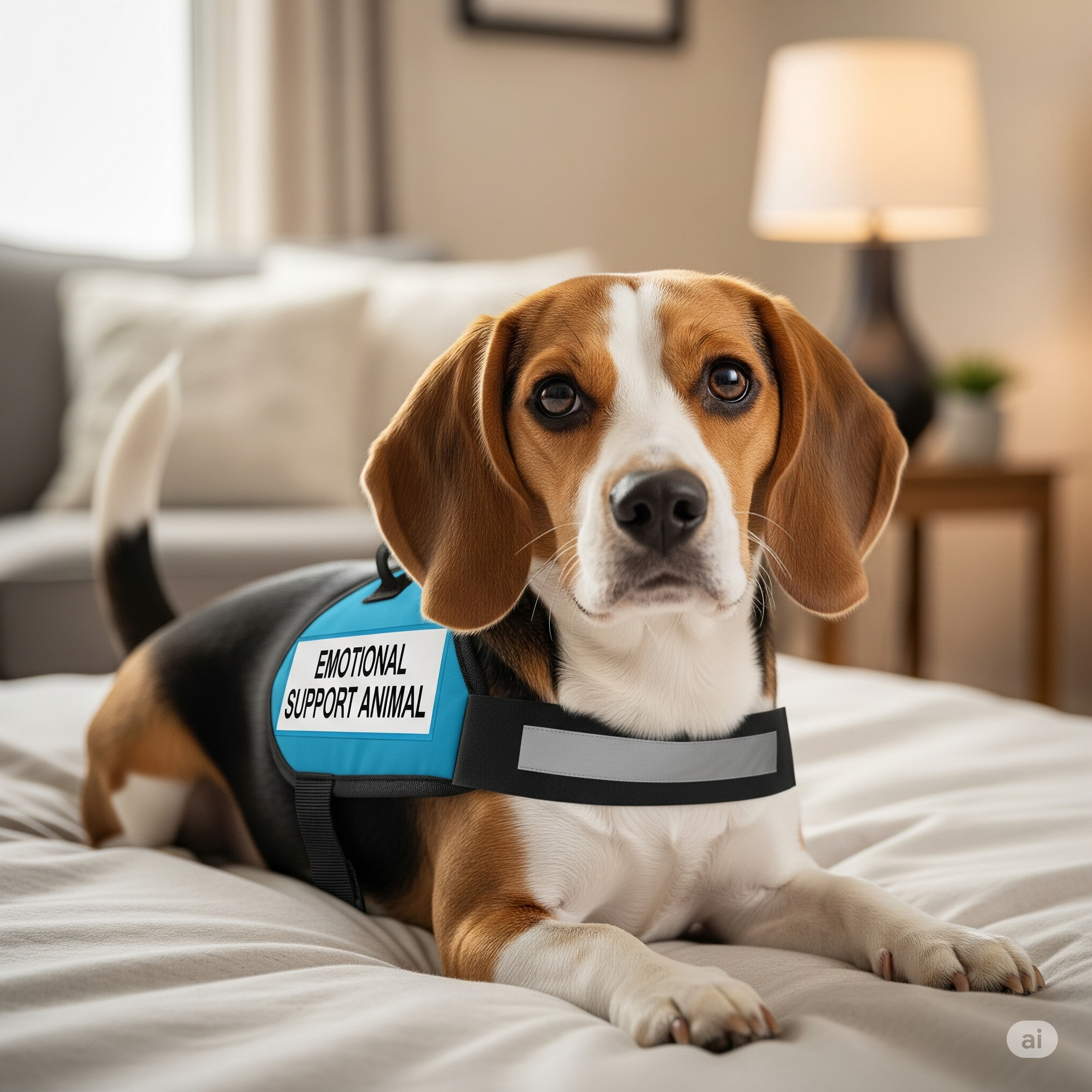If you’re an Oregon resident with an Emotional Support Animal (ESA) and are considering how your companion might fit into your workplace, it’s essential to understand the legal landscape. Unlike the clear protections for ESAs in housing under the Fair Housing Act (FHA), the rules for ESAs in the workplace are more nuanced.
ESAs and the Americans with Disabilities Act (ADA) in the Workplace
The primary federal law governing workplace accommodations for individuals with disabilities is the Americans with Disabilities Act (ADA). The ADA mandates that employers provide “reasonable accommodations” to qualified individuals with disabilities unless doing so would cause “undue hardship” to the business.
Here’s the crucial distinction:
- Service Animals are explicitly defined under the ADA as dogs (and in some cases, miniature horses) individually trained to do work or perform tasks for the benefit of a person with a disability. Service animals generally have a broad right of access to public places, including workplaces.
- Emotional Support Animals (ESAs), however, are not considered service animals under the ADA. Their purpose is to provide comfort through their presence, and they are not required to have specific task training. Therefore, employers are not legally required by the ADA to allow ESAs in the workplace in the same way they must accommodate service animals.
This means that in Oregon, your employer is not legally obligated to permit your ESA to accompany you to work simply because you have an ESA letter.
Requesting Accommodation for Your ESA at Work
Despite the lack of a legal mandate, it doesn’t mean bringing your ESA to work is impossible. Many employers are willing to consider such requests on a case-by-case basis. If you believe your ESA genuinely helps you manage a mental health condition that substantially limits a major life activity, and its presence at work would enable you to perform your job better, you can request it as a reasonable accommodation under the ADA’s general provisions for disability accommodation.
Here’s how to approach the conversation:
-
Obtain a Legitimate ESA Letter: This is the absolute first step. Ensure you have a valid ESA letter from an Oregon-licensed mental health professional (LMHP). This letter should state that you have a mental or emotional disability and that your ESA is necessary to mitigate symptoms of that disability. Services like CertifyESA can connect you with licensed mental health professionals who conduct evaluations and, if appropriate, issue legitimate ESA letters compliant with federal guidelines.
-
Frame Your Request as an Accommodation: Do not present it as simply wanting to bring your pet to work. Instead, explain that you are requesting a reasonable accommodation due to a disability. Clearly articulate how the presence of your ESA specifically helps you perform the essential functions of your job or navigate the work environment. For example, does your ESA reduce anxiety during stressful tasks, or help you focus by providing a calming presence?
-
Be Prepared for an “Interactive Process”: Under the ADA, employers are required to engage in an “interactive process” when an employee requests a reasonable accommodation. This is a dialogue between you and your employer to discuss your needs, explore potential accommodations, and determine if allowing your ESA is feasible without causing undue hardship.
-
Address Potential Concerns Proactively: Employers will likely have concerns about:
- Disruption: How will your ESA behave? Is it housebroken? Will it bark excessively or distract others?
- Allergies/Phobias: Are there co-workers with severe allergies or phobias?
- Work Environment: Is the workplace sterile (e.g., lab, hospital operating room), a food preparation area, or otherwise unsuitable for an animal?
- Safety: Does the animal pose any safety risks to others?
Be ready to discuss how you will mitigate these concerns. You might suggest a trial period, offer to keep your ESA in a specific area, or ensure they are always clean and well-behaved.
-
Consider Alternatives: Your employer might propose alternative accommodations that don’t involve bringing your ESA to work, such as a private office, flexible work schedules, telework options, or modified break times. Be open to discussing these alternatives to find a solution that works for both parties.
What Employers Can Do
- Ask for Documentation: An employer can request documentation from your LMHP to confirm that you have a disability and how the ESA helps you perform your job.
- Deny if “Undue Hardship” or “Direct Threat”: If allowing the ESA would pose an “undue hardship” (significant difficulty or expense) or a “direct threat” to the health or safety of others, the employer can legally deny the request. This is determined on a case-by-case basis.
Important Considerations for Oregon Employees
While Oregon’s Bureau of Labor and Industries (BOLI) protects civil rights in employment, the specific guidelines for ESAs in the workplace mirror federal ADA interpretations. There isn’t a unique Oregon law that grants broader workplace access for ESAs than federal law.
The best approach is always open communication with your employer, a clear understanding of how your ESA supports you in your job function, and a willingness to discuss and address any potential concerns they may have. While not a guaranteed right, many employers recognize the mental health benefits of ESAs and are increasingly open to making voluntary accommodations.





